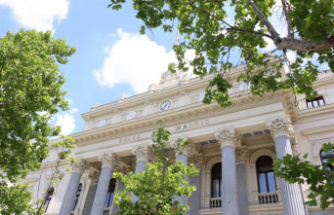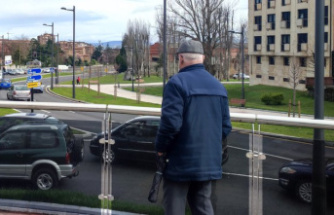For the past three years, France displays the highest level of taxation at the european level, according to figures from Eurostat. An observation which does not seem to surprise the French, as we are reminded in a study published in the journal of the OFCE (French Observatory of economic conjunctures) and reported by Echoes . In the latter, the researcher at the CNRS Alexis Spire (accompanied by Kevin Bernard of the EHESS (paris) and portrait-robot of the French, who trace their sense of injustice tax for several months. If everyone seems to see noon at his door, "the movement of the "yellow vests" that erupted in the fall of 2018 has brought to light an exasperation with regard to the samples which had been brewing in France for several years," analyses the researcher. In this study, conducted with over 2900 French interviewed in 2018, we learned that 88% of them believe that "France is a country where we pay too many charges and too many taxes." A modest increase over the past five years. In addition to the figures, the many explanations are supported throughout the study on various works on economic and sociological.
" READ ALSO - Powerful or miserable, the French aspire to horn and cry to "tax justice"
In detail, one discovers there, as well as 70% of taxpayers qualify for the income tax "fair". A figure that rises to 79% for households earning more than 4,000 euros per month. The respondents are also almost 7 out of 10 to find the "fair" tax on fortune - before his transformation into the IFIS. A figure that rises to 86% in households with income less than 2000 euros per month.
conversely, the VAT is the tax which divides the: unless a French on two think that it is justified. More specifically, more than half of households earning less than 2000 euros per month think that this tax is unfair, compared to 37% for the more than 4000 euros.
Away from the big cities, the tax is less well receivedin Addition to income, the study also takes into account the place of residence as a variable decisive in the formation of the sense of injustice tax". As well, the authors note that "the inhabitants of small cities (between 2000 and 20,000 inhabitants) were, respectively, 1.68 times and 1.35 times more likely to have the CSG and the income tax unfair than those of the large urban areas (200,000 to 1.9 million people)". Thus, the distance of the large cities here seems to justify the sense of injustice tax. "These territorial disparities refer to the heterogeneity of the presence of public services according to the geographical areas", says one. In fact, according to the study, the injustice also refers to the counterparties related to tax and the opportunities to benefit.
" READ ALSO - "yellow Vests": this anger come from small towns
A message which appears to have been very clearly exposed all the duration of the movement of the "yellow vests". In fact, according to a survey by the Cevipof conducted for the Association of mayors of France at the beginning of the protest movement, cities of less than 500 inhabitants, the majority in the country, are at the center of the "sense of abandonment" expressed in the demonstrations. In the same survey, more than one local elected representative on two also says it is "discouraged".
young people are more likely to feel an injusticeTwo other arguments emerge in support of this sketch. The first one is the level of study. The people more qualified to adhere to all levies, except the ISF, compared to the less educated. Conversely, "those who have a degree lower than the bachelor's degree consider it most unfair levies (except for VAT and the ISF) that more graduates". "The possession of a certain cultural capital may first correspond to a better knowledge of the investments and infrastructure that the tax system helps fund," notes Alexis Spire. It is estimated that, conversely, the least educated are more likely to lose interest in technical issues and find it unfair, a mechanism that seems foreign.
a Final criterion that could correlate to fiscal injustice: that of the age. "The taxpayers of more than 50 years have systematically less likely that the thirty-somethings to qualify the different levies unjust, with the notable exception of the CSG to which their sense of injustice is more pronounced," notes the study. Young people aged 18 to 29 years, and 31% to find the tax on income is unjust, against 16% for more than 60 years. One explanation for this: more than 50 years, "most of the owners have finished to repay their loans and are therefore more in a position to accept the property tax as a way to contribute to the improvement of the local life and not as an additional burden to their mortgage or their rent".
SEE ALSO: Taxation: should we impoverish the rich?
Date Of Update: 18 August 2019, 00:00












